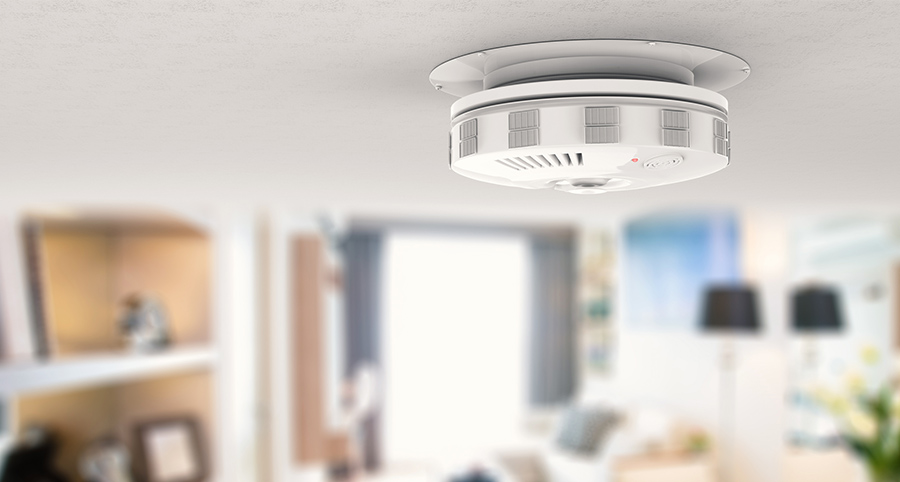What's the difference between standard smoke detectors vs. monitored fire alarms in Huntington?

In the Huntington smoke detector vs. monitored fire alarm debate, one component rises above the other. Smoke detectors are a vital first step in guarding your place from a dangerous blaze, but they have a few concerning limitations. Conversely, monitored fire alarms provide more means to detect an emergency and can notify help when disaster strikes. Connecting your fire alarms to a home security system also delivers various extra perks that your common smoke detectors can only hope for.
Ordinary smoke alarms will only do one thing
Defending against fire is a chief concern for homeowners, and smoke detectors play an essential role in shielding your family. However, smoke detectors have their limitations. For example, they can only react to smoke, not extreme temperatures. When there is a blaze starting in your residence, you would not be warned before the smoke rises to the smoke detector. While there are additional telltale signals of fire -- including a sudden rise in heat -- if there’s a lack of smoke, there is no triggered smoke detector.
What’s more, smoke detectors only sound the alarm when they encounter enough smoke. In the event a fire starts small, you may not be warned until the flames are out of control. Some smoke detectors employ more than one sensor, meaning they will be able to perceive smoke from both a raging fire and smoldering remnants. If they do go off, it’s required of the occupant to notify first responders after they safely leave the residence.
Monitored fire alarms offer more benefits than standard smoke detectors
While they have a similar appearance to standard smoke detectors, monitored fire alarms offer more benefits. If linked to a comprehensive home security package, they will:
- Discern fire with multi-sensor technology: Like an ordinary smoke detector, your monitored alarm can trigger from an intense fire or one that has just started smoking. It will emit an easily audible warning when it senses a hazardous situation.
- Identify fire with a rapid temperature increase: Your monitored fire alarm may also trigger if it discerns an unusual increase in heat. Typically, heat arrives before smoke. More methods to detect a fire equates to additional ways to protect your loved ones.
- Notifies professional monitoring specialists: Fires can take place whether you are home or away. No matter of the situation, your fire alarms will notify your monitoring specialists, who are able to swiftly call emergency services. When every moment matters, it's nice to realize that somebody is always keeping a watch of your home.
- Pairs with home automation: While the primary task of a fire alarm is to detect dangerous situations and request help, it may also connect to other automated devices. For instance, a triggered alarm could prompt your system to turn on the exhaust fan to hinder the spread of fire or initiate lighting so you can locate the quickest way out of the house.
Your monitored fire alarms are part of a fully equipped smart home
The best approach to optimize your fire alarms is to integrate them with a Vivint home security system. Contact a Vivint specialist today and customize the ideal smart home for your family. Call (304) 902-8188 or complete the form below to take the first step toward a safer property.